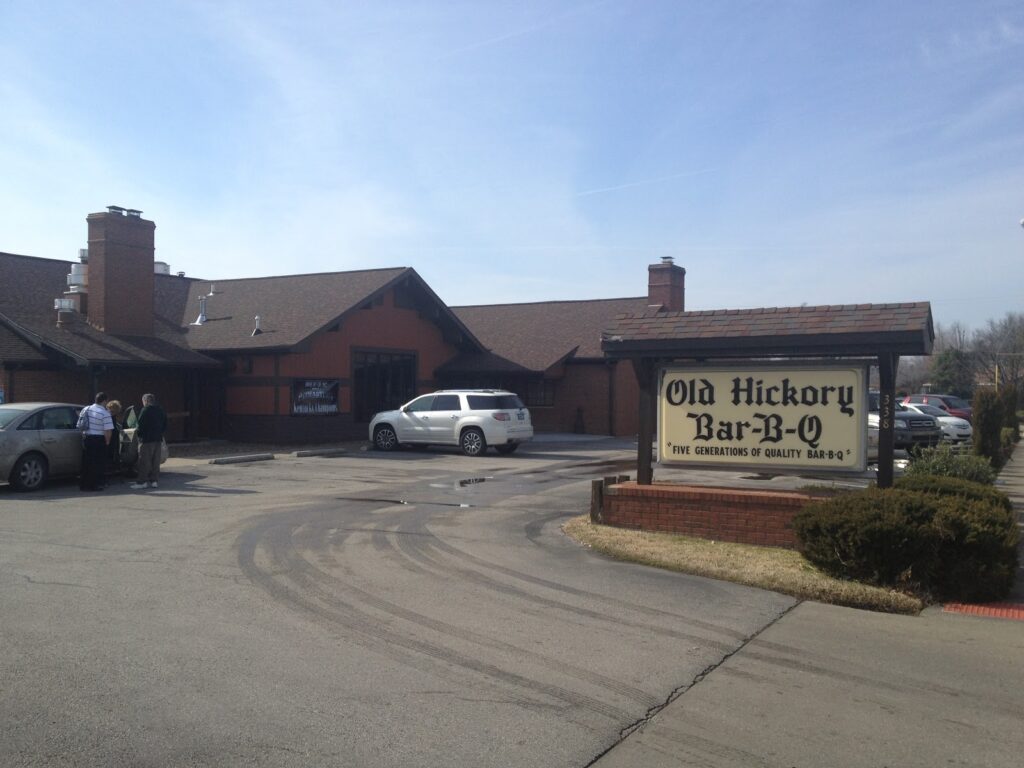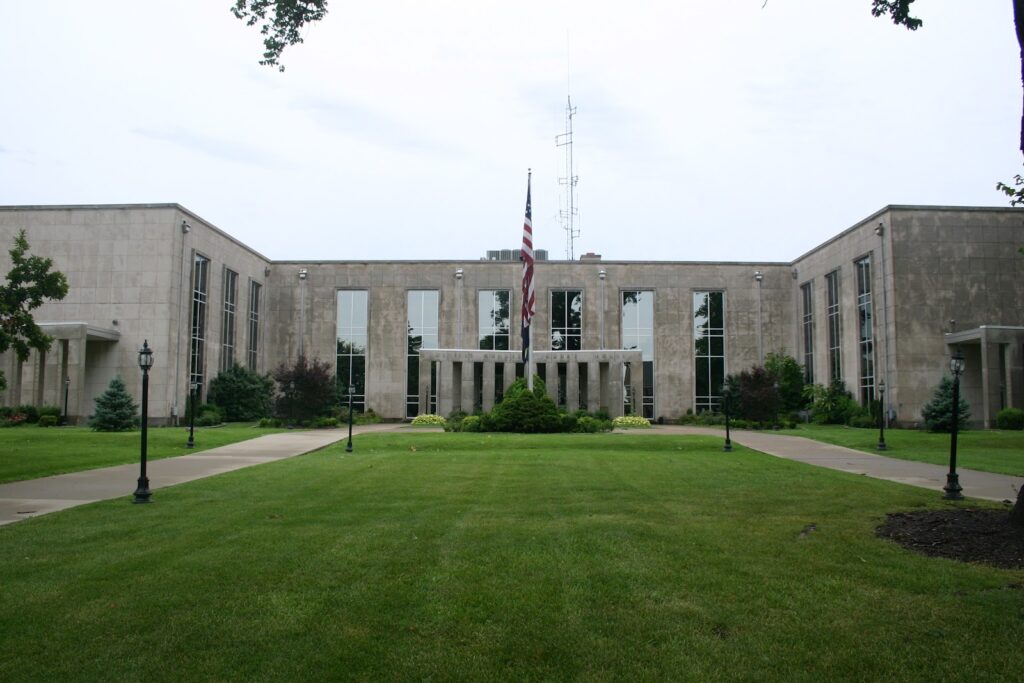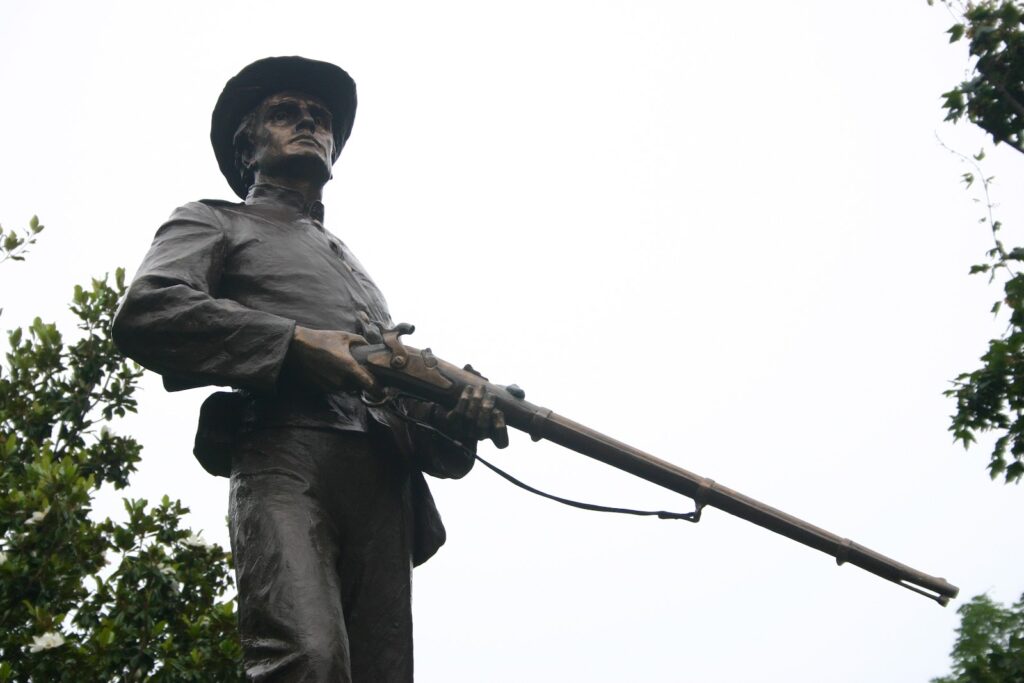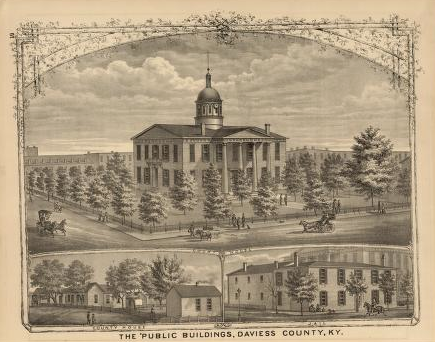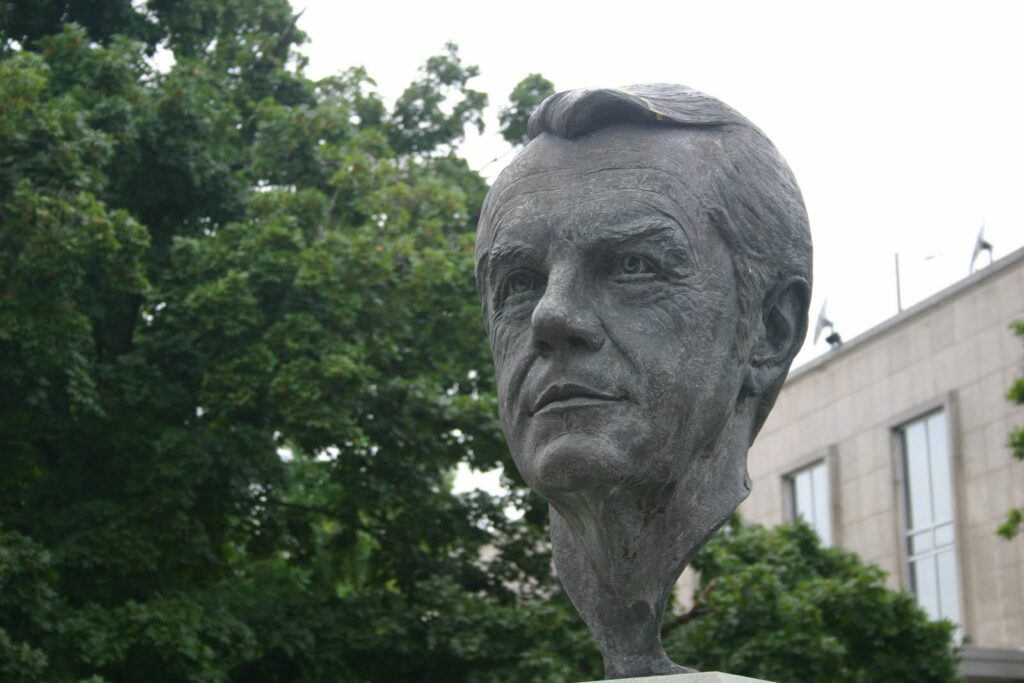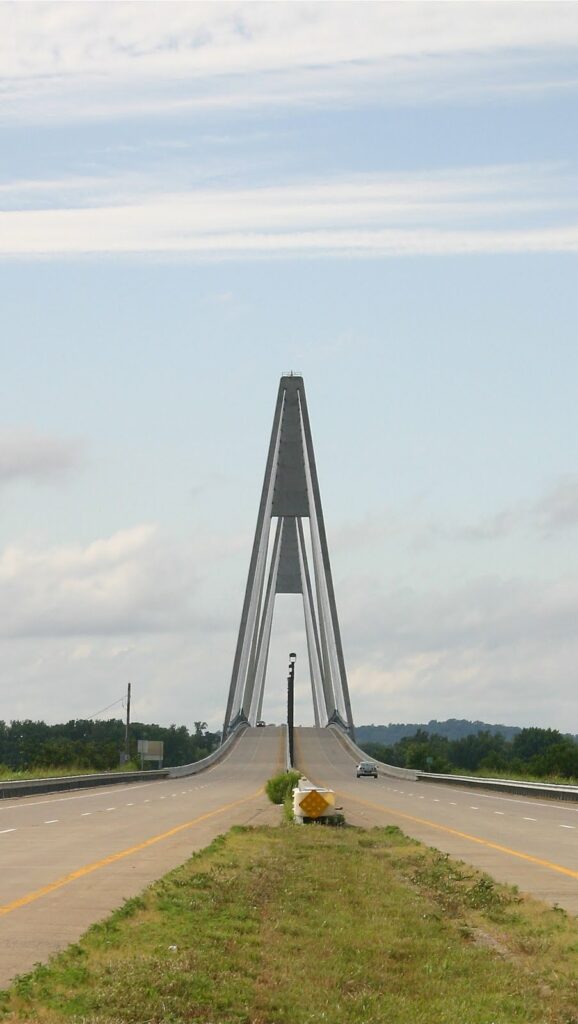| Wendell H. Ford Bust at Daviess Co. Courthouse. Nate Kissel. |
I, along with the rest of the Commonwealth, learned this morning of the passing of one of Kentucky’s political greats of the 20th century. Wendell H. Ford was 90. In 2012, NRK wrote Along the Elkhorn Vale about the former Kentucky Governor and US Senator and revised excerpts from that post are included below:
Although it would have been fitting to place the bust of Wendell H. Ford anywhere in the Commonwealth, it appropriately sits on the courthouse lawn in Owensboro. Wendell H. Ford was born in Owensboro in 1924.
From 1967-71, he served as the Lieutenant Governor during the administration of Gov. Louie Nunn. He was then elected Governor, serving from 1971-1974. From the Governor’s Mansion, Ford ran for and was elected to the U.S. Senate in 1974. Ford, a Democrat, served Kentucky in Washington from 1974 until 1999. His service was marked with stints as both minority and majority whip.
His election as Governor in 1971 resulted in his overcoming one former governor in the Democratic primary (Brett Combs) and another in the general (Happy Chandler mounted an independent bid to retake his old position). By defeating two former, popular Democratic governors, Ford cemented his stronghold on his political party and end some of the sectionalism that had traditionally plagued state Democrats.
The Wendell Ford administration was marked by efforts toward efficient government, consolidation, and raising certain taxes. The coal severance tax was imposed and both the corporate tax and the gasoline tax were raised; these revenues helped to offset the elimination of the sales tax on food items. Kentucky also passed the Equal Rights Amendment and the University of Louisville was transferred to state control while Wendell Ford was governor.
He was a great Kentuckian. A true icon and ambassador for the Commonwealth.

